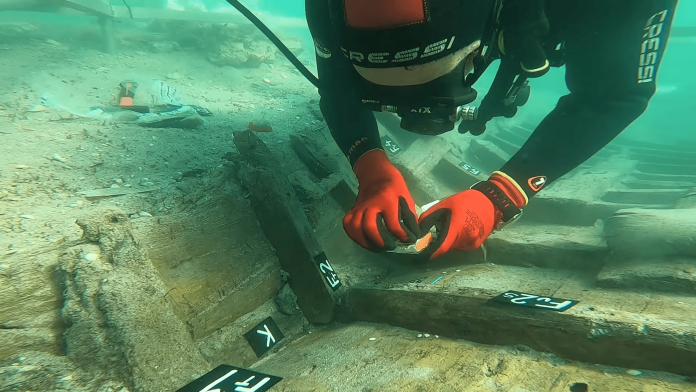A remarkably well-preserved Ancient Roman ‘sewn ship’ from around 2,000 years ago has been unearthed in Croatia. The discovery took place at the Porta de Mar archaeological site in the town of Poreč, where the ship had sunk near an ancient pier. This finding is considered the most significant archaeological discovery of the century in Croatia, providing valuable insights into ancient ship-building techniques.
Measuring 16 feet (5 meters) in length, the ship was constructed using ropes and wooden nails, with many of its original timbers remarkably intact. The preservation of the ship was made possible because it had been embedded in mud at a certain depth, preventing oxygen from penetrating and causing deterioration.
Experts believe that this vessel was a small private fishing boat equipped with a single sail. Sewn ships, which involved stitching planks together using ropes and wooden nails known as ‘spots,’ were commonly used in the northern Adriatic region during the 1st century AD. The wreck of this ship records every stitch made during its construction, providing valuable insights into ancient boat-building practices.
While sewn ships have been discovered before in Croatia, they were mostly found underwater, making their study quite challenging. The recent find at Porta de Mar is one of three boats discovered on land, making it more accessible for examination and research purposes.
The ship was uncovered during a redevelopment project, and archaeologists are currently conducting studies on it before its removal and conservation. Eventually, the remarkably well-preserved remains will be exhibited to the public at the Poreč museum.


